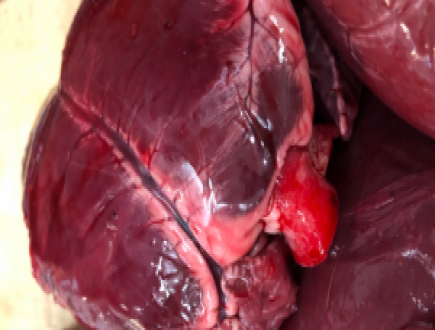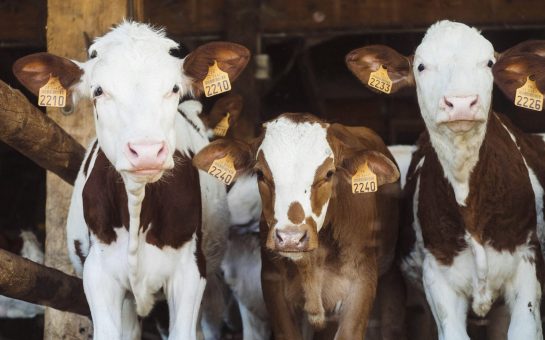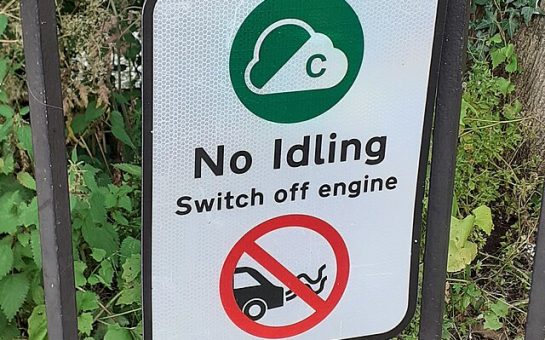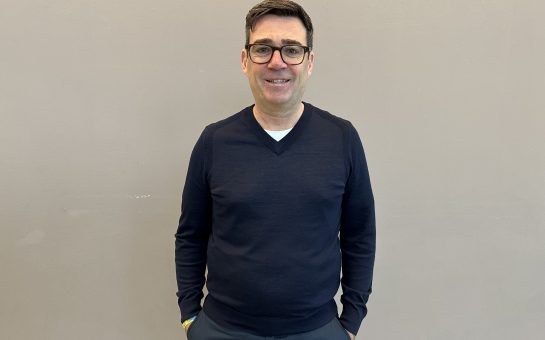January is a time for setting resolutions and one of the most popular trends over the past few years has been Veganuary, where people adopt a vegan diet for one month.
Veganism, a diet where no animal products are consumed, has become increasingly popular due to its environmental claims and the trend for clean living.
But this year there’s a new food-fad in town: Organuary. It’s a movement with the aim of reducing waste and rediscovering a long-lost component of our diets, offal.
Eating organs may not appeal to avocado worshipping millennials, yet it provides us with nutritionally dense food, is cheap and is an environmentally friendly way of consuming meat.
Sam Feltham, the director of the Public Health Collaboration, the charity which runs Organuary, came up with the idea last year.
“Our consumption of offal has reduced 10 fold since 1974 so we’re on a bit of a mission to try and increase it, because its been in our diets throughout our evolution, so its probably a good idea to keep it in and there’s many reasons for that,” says Sam.
“Firstly, they’re very nutrient dense foods, particularly things like liver. Secondly, if we use more of the animal then we massively reduce waste, also it increases the bottom line for all the farmers.”
If offal has so many benefits, then why have we stopped consuming it?
“It feels like its stuff that should go in the bin because we haven’t been eating it when we were kids,” says Sam.
“The baby boomer generation are very acceptant of offal, but then it fell out of favour probably because it is less pleasing to the eye.
“If we try and introduce a culture that it’s part of everyday life to our children then people won’t bat an eye lid to having liver, kidneys or heart.
“A good idea is to try and put offal into meals you already do. So, for instance, if you’re making a Bolognese of some kind then you can actually mix pâté into the sauce.”
Sam is quick to stress that Organuary is not in competition with Veganuary, more that it is another option for people to consider.
“From our perspective we’re omnivores, and in order to respect the life that was given we should certainly eat the whole of the animal.”
Another reason to introduce offal into our diets are the benefits it brings to the local community. Afterall, if we’re trying to be more environmentally friendly then ‘food miles’ is something that should be considered.
Buying offal helps local butchers as it’s not something you can get as easily from the supermarket.
Keeping up my New Years resolution to eat more #vegans
And also supporting @Organuary we’ve got some beautiful grass fed dexter heifer liver for dinner tonight. #organs #properbutcher @q_guildbutchers pic.twitter.com/U9i4pbgpo8
— LEE HORSLEY FROST (@frostybutcher) January 8, 2020
Lee Horsley Frost, who is the Operations Director for WH Frost Butchers in Chorlton, is an advocate of Organuary.
“A lot of the butchery we undertake is full carcass, so you obviously get the heart, the liver, all the offal skirt or the hanger steak, the kidneys.
“We promote it, we sell a huge amount of offal, organs, trotters and tripe. Everything that comes out of the body that you wouldn’t think people would eat we do promote, and we do sell a lot.”

Many people may be wary of cooking and eating offal, but your local butcher can give you advice on how best to prepare it, as Lee explains.
“If you cook liver for a long time it goes hard and chewy and awful so it needs to be well seasoned, well prepared, and then cooked so it’s slightly pink, and it’ll be very soft and lovely.
“I think a lot of people have had badly cooked offal in the past and that’s what puts them off.”
And what if you’re a meat eater and still unsure about offal? Lee has some food for thought.
“Some people find it a bit squeamish to eat those parts of the animals, well they shouldn’t really be eating the other parts, should they? You should respect the animal and eat all of it, every part, or at least try.”
All images courtesy of Lee Horsley Frost, with thanks



